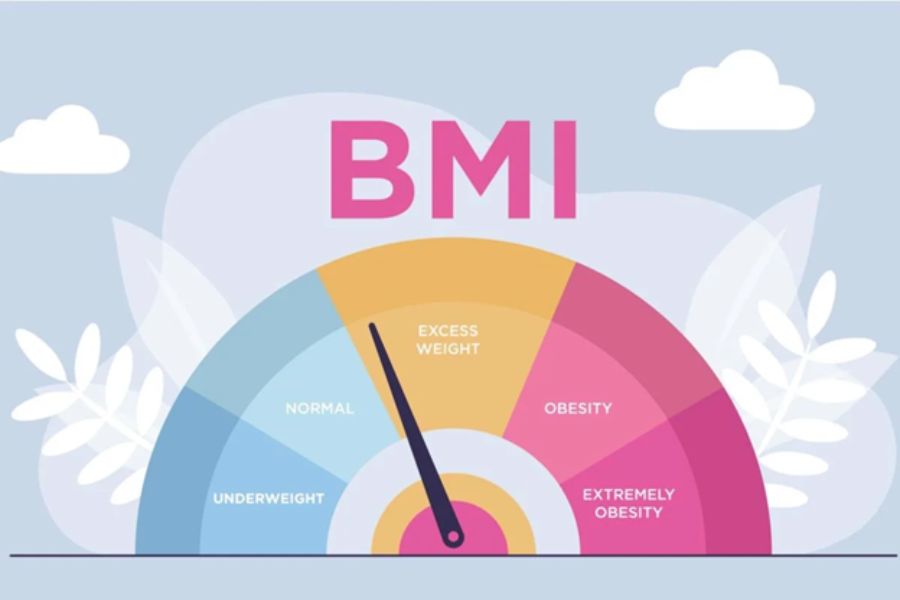In the journey towards achieving and maintaining a healthy lifestyle, the Body Mass Index (BMI) serves as a crucial indicator. It helps individuals understand and manage their body weight relative to their height. The concept of BMI has been widely utilized in health and fitness assessments, serving as a foundational tool for advising on potential health risks associated with being underweight, overweight, or obese. This article delves into the intricacies of BMI, highlighting both healthy and unhealthy ranges. Additionally, the roles of tools like the BMI Calculator and Calorie Calculator in managing body weight will be explored.
What is BMI?
BMI is a numerical value derived from an individual's weight and height. It is calculated by dividing a person's weight in kilograms by the square of their height in meters (kg/m²). This simple formula categorizes individuals into various weight status categories, which can be indicative of their general health. For more personalized and immediate results, using a BMI Calculator is recommended, as it simplifies the computation by providing instant feedback based on one’s weight and height inputs.
BMI Categories
The World Health Organization (WHO) defines several BMI categories, which are commonly accepted in the medical community:
- Underweight: BMI less than 18.5
- Normal weight: BMI between 18.5 and 24.9
- Overweight: BMI between 25 and 29.9
- Obesity: BMI 30 or greater
These categories help health professionals in recommending nutritional guidelines and lifestyle changes. However, it is important to note that BMI is not a perfect measure. It may not accurately reflect the muscle mass in athletes, the body fat distribution, or the health status of the elderly.
Importance of Knowing Your BMI
Understanding your BMI through a BMI Calculator can offer a preliminary gauge of your overall health risks associated with weight-related diseases such as cardiovascular diseases, type 2 diabetes, and certain cancers. Recognizing whether you fall within a healthy or unhealthy BMI range can prompt necessary changes in diet and physical activity levels, contributing to better health management.
The Role of a Calorie Calculator
Weight management is intricately linked to caloric balance—the balance between calories consumed and calories expended. A Calorie Calculator becomes an essential tool in this regard. It helps individuals determine the number of calories they should consume daily to either maintain, lose, or gain weight, based on their BMI, age, sex, and activity level.
For instance, someone who is categorized as overweight according to the BMI Calculator may use a Calorie Calculator to plan a diet that creates a caloric deficit. This is conducive to weight loss. Conversely, an underweight individual might find it beneficial to create a caloric surplus to gain weight in a healthy manner.
Healthy BMI and Lifestyle Adjustments
Achieving a healthy BMI often requires lifestyle adjustments that include a balanced diet and regular physical activity. These changes not only help reach and maintain a healthy BMI but also improve overall physical and mental health. Regular use of a BMI Calculator and a Calorie Calculator can assist in monitoring progress and making informed decisions about diet and exercise.
Unhealthy BMI Ranges and Health Risks
An unhealthy BMI, whether it is below or above the normal range, can pose significant health risks. Being underweight can be just as hazardous as being overweight. Underweight individuals might face issues such as nutritional deficiencies, osteoporosis, and a weakened immune system, leading to frequent illnesses. On the other hand, an overweight or obese BMI can increase the risk of chronic diseases, mentioned previously, as well as complications like sleep apnea and joint problems.
Addressing BMI Extremes
For those who find themselves in either extreme of the BMI spectrum, consulting health professionals and possibly utilizing a BMI Calculator for regular monitoring is essential. Dietitians and fitness experts can provide personalized advice and strategies that are respectful of one’s individual health conditions and dietary needs.
The Limitations of BMI
While BMI is a useful indicator of general body weight health risks, it has its limitations. It does not account for muscle mass, bone density, overall body composition, and racial and sex differences. Therefore, individuals should consider other measures of body fat and health assessments, alongside BMI, to get a comprehensive view of their health.
Conclusion
In conclusion, understanding your BMI through tools like the BMI Calculator is an effective first step in recognizing potential health risks associated with different BMI ranges. Coupled with the use of a Calorie Calculator, individuals can make informed decisions about dietary needs and exercise regimes. However, it's important to remember the limitations of BMI and consider additional health indicators and professional advice when assessing one’s overall health. By integrating these tools and insights into a broader health and wellness strategy, individuals can better navigate their path towards a healthier life.
This is a Public Relations (PR) article has been published as received without any editorial enhancement or modifications. The Telegraph Online does not endorse or guarantee the accuracy, reliability, or completeness of any information presented in this article. The organization is not responsible for any errors or omissions in the content or for any losses, damages or injuries of whatsoever nature directed towards whomsoever arising out of the use of information provided in the article.











